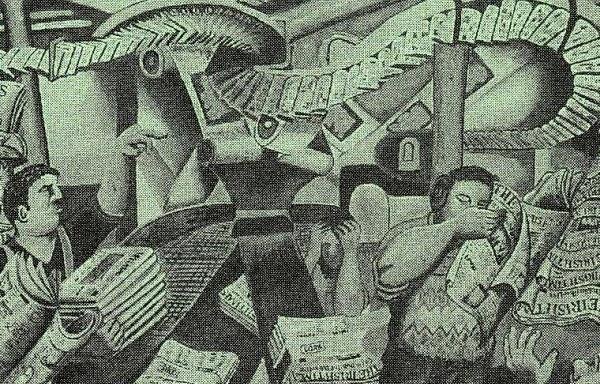By Michael Kirke in Dublin
Paul Harman, main organizer of the event, outlined the origin of the conference as follows: “The Cleraun Media Conferences began in quite a small way and have now developed into a national forum, which has its aim to allow those who are starting off in their careers learn from those who are at the peak of their profession.”
Cleraun is a center for students. Like similar undertakings of the Opus Dei Prelature around the globe, it sets out to foster Christian ideals and character development, in this case especially for young people. The conferences on the media were one of the initial annual events at Cleraun in 1986.
The 17th Cleraun Media Conference, held Nov. 16 – 18, included a discussion by BBC journalist Declan Lawn on the issue of authenticity and fake news.
Directly contradicting the impression that “fake news” is the dominant characteristic of the information that is flowing our way every time we go online, turn or a radio or read a newspaper, Lawn said that “authenticity is becoming the basic currency of engagement in contemporary media. It’s the future.”
“So what do I mean by authenticity,” he asked. “I mean the unvarnished, the honest—and often, the unedited. Authenticity is different from trust. You can trust the journalistic integrity of a platform, but you can watch a program or a report and it can still feel contrived.”
He went on to say that “people will pay for, and value, editorial integrity. They are hungry for it. Now, in ten years, in twenty years.” He predicted that within five years, “accuracy, balance, and fairness will in fact be somehow commodified. There will be a metric by which people can rate and access the integrity of the sources they are reading, just like now they rate restaurants and hotels … A kind of Spotify for newspapers, but only papers that have proved themselves to adhere to a strict set of journalistic standards.”
For the 150 mainly young journalists and filmmakers attending the conference, insights like these were of real value. The other 18 speakers over the three days were leading Irish and international journalists and documentary filmmakers.
“From the beginning, the aim was to create a forum to look at live ethical issues, and so help media practitioners—particularly younger ones—do their job better, more professionally. As others have said, it is ethics which make journalism a profession.
“It is for others to evaluate the standing and prestige of these conferences,” Harman said, “but no doubt one thing that helped was the publication of books based on the papers presented. Nowadays the papers and audios are placed on the website, which means they are available to a much wider audience.”

More information about the Cleraun media conferences is available at www.cleraunmedia.com.
Michael Kirke is a writer and journalist based in Dublin.

